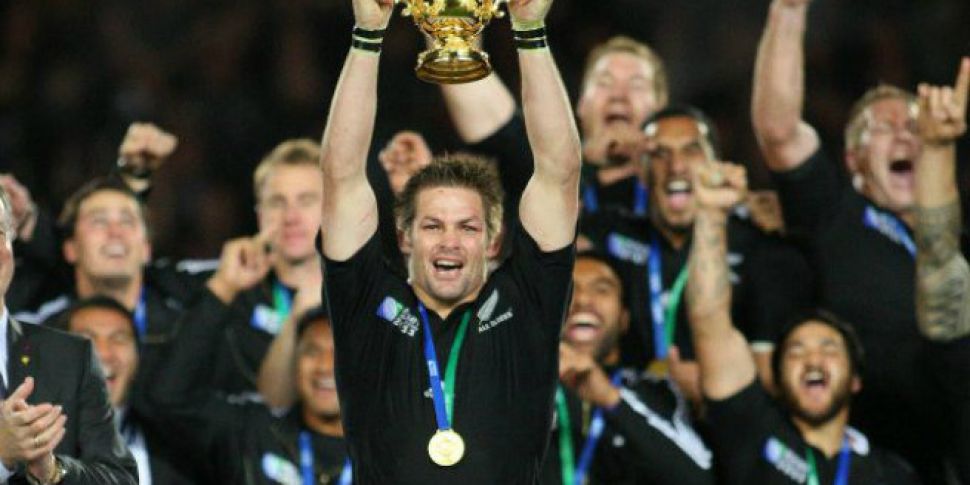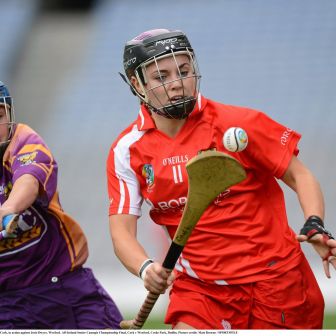By the time a ball was kicked in the 2011 Rugby World Cup in New Zealand the country had spent NZ$300m (€188.2m) on hosting the event. Big tournaments can be great for tourism - but there have also been a number of instances when the Olympics and other major sporting events have had disastrous impacts on the economies of host cities and nations.
In order to launch a credible bid to host the 2023 Rugby World Cup, it is believed that the Irish Government will have to underwrite a guaranteed payment of more than €120m. The question is, does it make economic sense for Ireland to host the tournament?
The Irish bid
Speaking at the official launch of Ireland's bid to host the tournament this morning, Taoiseach Enda Kenny said: "We have the fans, the stadiums and the accessibility to make it a World Cup to remember."
Ireland's sporting, travel and tourist infrastructure could be one of the country's big selling points, as well as its proximity to a number of the world's strongest rugby nations.
Speaking to Pat Kenny on Newstalk, IRFU chief executive Philip Browne said that if Ireland was to host the tournament, they would be required to hand over a fee to World Rugby. That amount has not been finalised, but he expects it to be either as much, or more, than the £96m (€121m) paid by Japan, who is hosting in 2019.
Mr Browne expects that the tournament could either break even or run at a slight loss - but on the flip side it would inject €600m in the economy of the island as awhole through taxes and direct sales alone.
The IRFU chief highlighted the importance of the GAA's involvement in the project, saying: "It wouldn't be impossible without them." The association is set to benefit from the bid, as it will be given funding to renovate up to six stadia which will be part of Ireland's plan.
He also commented that he is confident that the Irish package will be financially viable, and technically strong.
A statement from the IRFU says that the tournament could attract more than 350,000 visitors to the island.
Northern Ireland's executive is also backing the bid and has recently invested £14.7m (€18.6m) in redeveloping Raven Hill.
Taoiseach Enda Kenny speaking at today's launch in Armagh
Learning from New Zealand 2011
While England will host the next World Cup - Ireland can probably learn more from New Zealand's experience hosting the tournament in 2011. Both are island nations - although Ireland has the advantage of being one rather than two islands. The countries have similar populations figures, Tánaiste Joan Burton made reference to New Zealand's World Cup as an example of, "what a fantastic experience major tournament can be".
Economic analyses have shown that the tournament had a clear, and significant, positive impact on the county's GDP in 2011. This was due to increased spending in sectors like hospitality, recreation, and retail.
Some 133,000 people travelled to the tournament, and the total numbers of tickets sold to matches was over 1.3 million. Before the event kicked off, it is was predicted that it would create 10,000 to 15,000 jobs and that fans would work their way through 7.5 million litres of beer.
New Zealand made an initial loss of NZ$31m (€19m) on hosting the tournament. When that figure was announced its minister for the Rugby World Cup, Murray McCully commented that: "Without a doubt, RWC 2011 will generate significant economic benefits for this country for many years to come."
The problem with these tournaments is that the costs are clear, but a lot of the benefits are harder to put a figure on. It is estimated that the event was eventually worth NZ$1.44 bn (€1.1 bn) to New Zealand's economy.
London Calling
Ernst & Young were announced as business adviser to the 2015 Rugby World Cup in England. A study carried out by the company reports that the tournament will inject £1bn (€1.3bn) into the country's economy. It also predicts that it will set a new record for foreign visitors, bringing 466,000 rugby fans to the country.
Upon the success of England's bid, it is thought that the financial plan that they presented was one of the deciding factors. It projected ticket sales of 2.8 million, with an average of 57,000 spectators attending matches - returning a pre-tax profit of £102m.
So...
While the tournament will cost a lot of money - and will probably run at a loss - the overall impact on the economy should be positive. In general Rugby World Cups have avoided the negative consequences associated with other major sporting tournaments.









